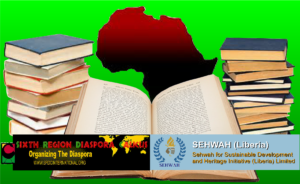 EDITOR’S NOTE: This article originally appeared on August 7, 2018 as “Sixth Region Diaspora Caucus Liberia Library Book Donation Project”. This is an update of that article and a continuation of the Library Project.
EDITOR’S NOTE: This article originally appeared on August 7, 2018 as “Sixth Region Diaspora Caucus Liberia Library Book Donation Project”. This is an update of that article and a continuation of the Library Project.
Among the projects being developed by the Sixth Region Diaspora Caucus (SRDC), a Pan-Afrikan Diaspora organization dedicated to organizing the voice of the grassroots Pan-Afrikan Diaspora at the local level and merging them to take that voice to the World Stage through the African Union, United Nations and independent Afrikan Diaspora organizations, are a number of initiatives working toward the development of concrete institutions and services on the Afrikan Continent. One of these is the Liberian Library Book Donation Project, being led by the South Carolina SRDC Organization and its State Facilitator, Mr. Joseph “Kumasi” Palmer.
As of this writing, there are no Public Libraries in Liberia, according to Mr. Palmer. This comes as a surprise to many of us, partly because of our assumptions in the United States that a Library is so routine that we often ignore them, as well as the documented progress that Liberia has made since the removal of Charles Taylor as President in 2003 and the election of Ellen Johnson Sirleaf as Afrika’s first woman head of state in 2006. Mr. Palmer and several associates from South Carolina have met with Liberian officials to advance work on the development and supply of the first Public Library in Liberia.
Below is the public letter that was released in August 2018 by the South Carolina SRDC Organization concerning the project and the criteria for donating books. Contact information for the South Carolina SRDC Organization is also included below. If you have gently used books that you would like to donate, please feel free to contact them to arrange your donation.
July, 2018
Dear Friends and Associates,
The South Carolina branch of the Sixth Region Diaspora Caucus (SRDC) is embarking on a project to help establish a public library in Monrovia, Liberia, West Africa. We have endeavored to collect book donations, create a working inventory and database, and ship books to Liberia. The key to the success of this type of project is a good and dedicated ‘on the ground’ partner with a proven track record. We have that in SEHWAH, a local and international Liberian organization. The Director of SEHWAH, the Hon. Ms. Louise W. McMillan-Siaway, was the Assistant Minister for Culture (Ministry of Information, Cultural Affairs and Tourism) under the former Ellen Johnson Sirleaf administration. Ms. McMillan-Siaway is working closely with the current Liberian government to obtain a proper space and furnishings for the library.
“In America there is a public library in every community. How many public libraries are there in Africa? Every day there are new books coming out and new ideas being discussed. But these new books and ideas don’t reach Africa and we are being left behind.”
-George Weah, President of the Republic of Liberia, West Africa
This initiative, though absolutely necessary, is not without its challenges. Still, SRDC considers it a major responsibility and is excited to be the pioneering element of this project. Public libraries are essential in the process of providing citizens access to knowledge. It is certain that a well-stocked public library will have a positive impact on Liberian literacy and development. For this reason, we are taking a grassroots approach and are reaching out to you to donate and/or purchase books to donate. Grassroots interest and involvement is a way to ensure that the library is solidly developed, sustainable, accessible and well-used.
SUBJECTS NEEDED
- History (World History/African History/African American History/Caribbean History/History of Blacks in Europe, etc.);
- Political Science;
- English (Grammar/Writing);
- Music;
- Arts;
- Literature/Novels;
- Geography;
- Education;
- Math;
- Finance;
- Banking;
- International Trade;
- Health;
- Hygiene;
- Wellness;
- Science;
- Ecology;
- Medicine;
- Nursing;
- Farming;
- Gardening;
- Agriculture;
- Animal Husbandry;
- Law;
- Business;
- Computer Technology;
- Construction and Building Technology;
- Electrical;
- Plumbing;
- Engineering;
- Electronics;
- Photography; and
- Children/Young Adult books.
We will accept “For Dummies” book titles (e.g., Digital Photography for Dummies).
See link for list of titles: https://www.dummies.com/store/All-Titles.html
GUIDELINES
•We seek gently used books – books that are in good condition.
•Books or novels that have “explicit” sexual content (pornography) will NOT be accepted and/or shipped to Liberia.
•Books that evangelize/proselytize/promote a particular religion will NOT be accepted and/or shipped to Liberia, unless we can determine historical value.
•Please send a listing of all books, along with your name, organization, email address and contact phone number to the email address listed below.
•Pack books carefully and deliver or mail to our warehouse:
Mr. Joseph Palmer
901B Long Point Road
Mount Pleasant, SC 29464
Phone: 843.452.4880
Email: panafricanlibrary@gmail.com
In the future, we will need to set up a Board in order to oversee the development and supervision of staff and interns for the library; to create a proper atmosphere and establish methods to measure and maintain the progress of the library. Contact us with any questions or concerns. We will keep all of our book donors posted on all developments pertaining to the library (so please send us the list of books you are donating as well as your name and contact information).
Monetary donations in any amount can be made via PayPal at www.yaaba.org. YAABA is our 501c(3) charitable partner organization. Any donated funds will be used to defray costs and materials needed to ship the books to Liberia.
Please remember, A library is not a luxury but one of the necessities of life, so kindly assist us by becoming a benefactor of this important initiative.
Sincerely,
Joseph Palmer
Facilitator
SRDC – South Carolina
Email: panafricanlibrary@gmail.com
https://srdcinternational.org
Like this:
Like Loading...
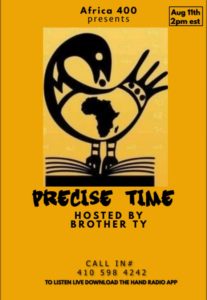 Africa400 features host Baba Ty on Wednesday, August 11, as he discusses the topic “Precise Time”. Call-ins are welcome at (410) 598-4242. Baba Ty consistently sounds the alarm for us to become educated about the roots of racism and oppression in this society, and to understand the need for struggle and resistance against injustice.
Africa400 features host Baba Ty on Wednesday, August 11, as he discusses the topic “Precise Time”. Call-ins are welcome at (410) 598-4242. Baba Ty consistently sounds the alarm for us to become educated about the roots of racism and oppression in this society, and to understand the need for struggle and resistance against injustice.
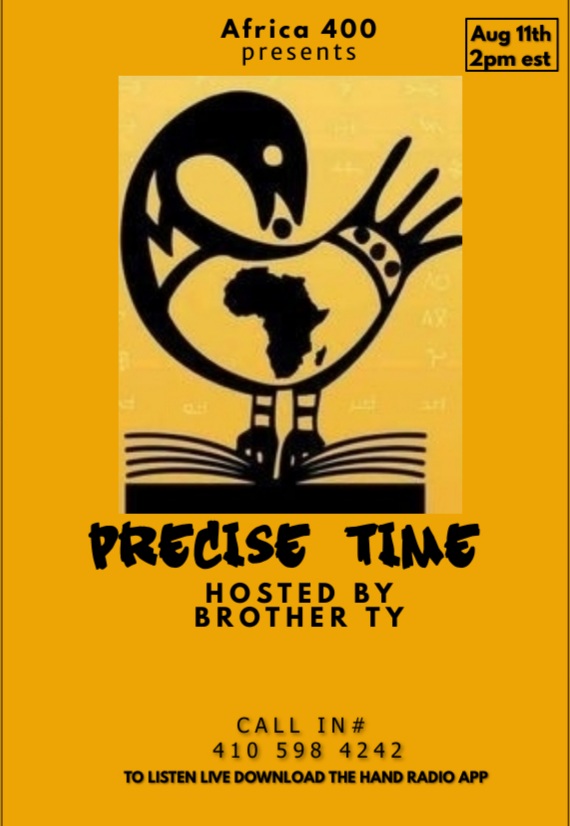
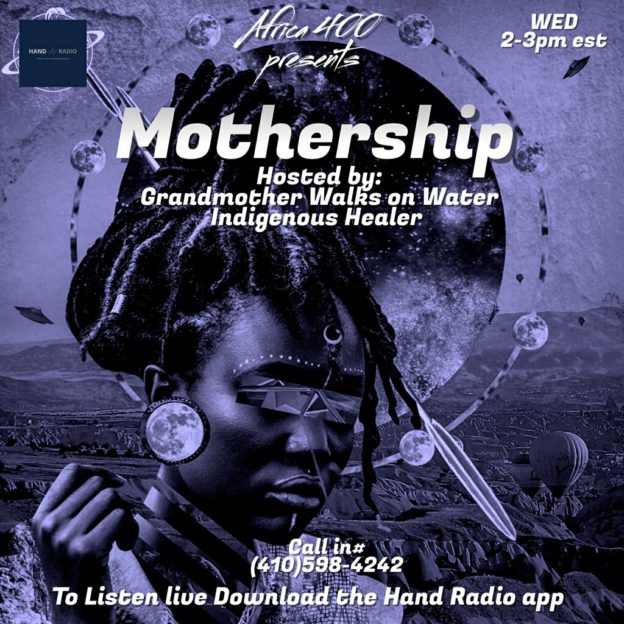
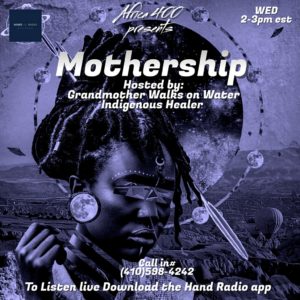 Africa400 features frequent guest and now alternating guest host Grandmother Walks On Water, as she presents Mothership for the Wednesday, August 4 show.
Africa400 features frequent guest and now alternating guest host Grandmother Walks On Water, as she presents Mothership for the Wednesday, August 4 show.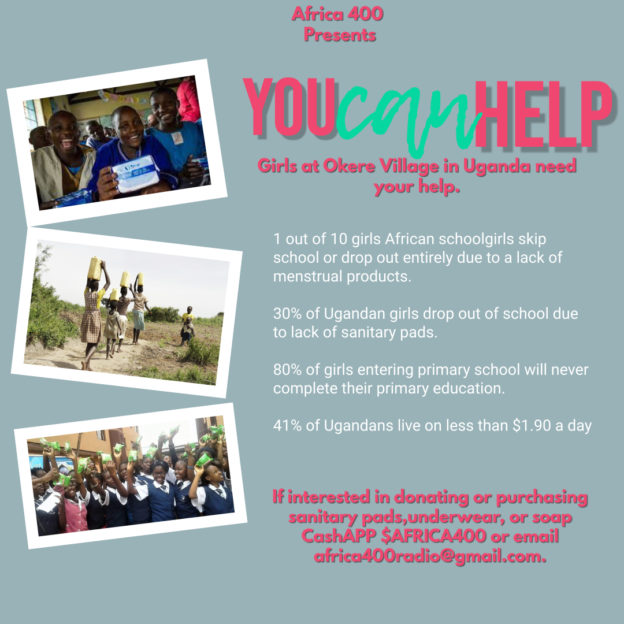
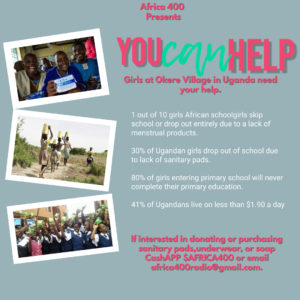
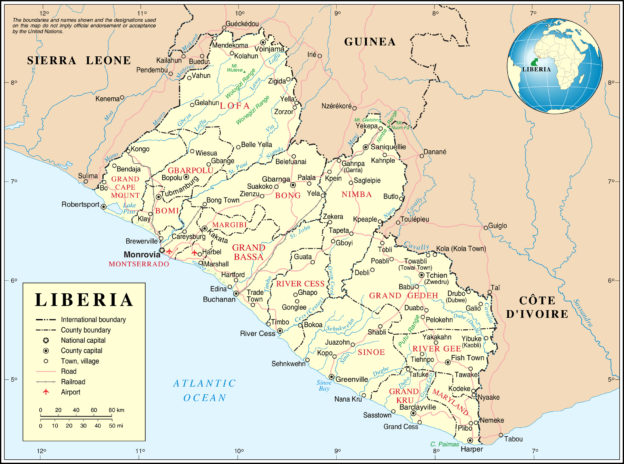
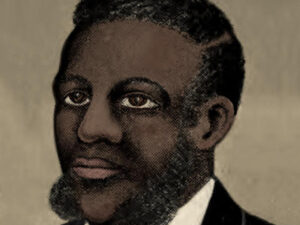

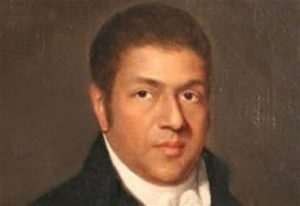
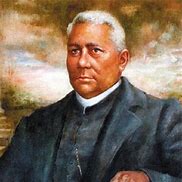
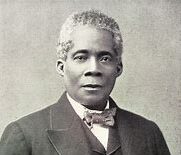
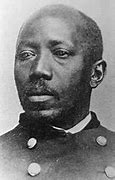

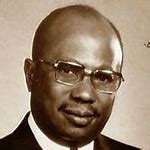
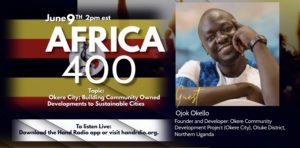
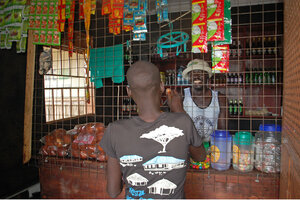 Ojok Okello earned a master’s degree in rural development and worked for international NGOs like War Child UK and the Konrad Adenauer Foundation in England, He earned a second master’s at the London School of Economics.
Ojok Okello earned a master’s degree in rural development and worked for international NGOs like War Child UK and the Konrad Adenauer Foundation in England, He earned a second master’s at the London School of Economics.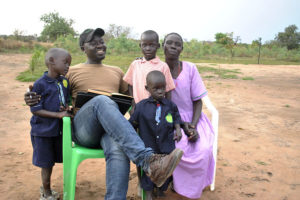 He is co-founder of Refugee Innovation and Sustainable Enterprise – Urban Project (RISE-UP) and Team Leader at its adjunct initiative, RiseUp Hub, a social enterprise with the mission to expand economic opportunities for urban refugees in Uganda. Okello founded Okere City in 2019.
He is co-founder of Refugee Innovation and Sustainable Enterprise – Urban Project (RISE-UP) and Team Leader at its adjunct initiative, RiseUp Hub, a social enterprise with the mission to expand economic opportunities for urban refugees in Uganda. Okello founded Okere City in 2019.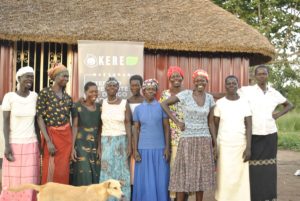
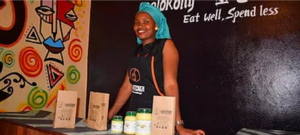

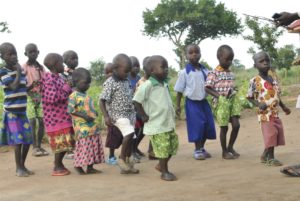
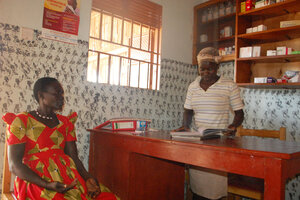
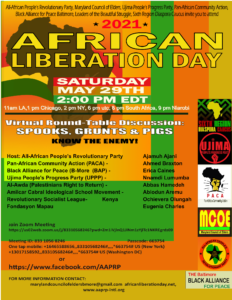

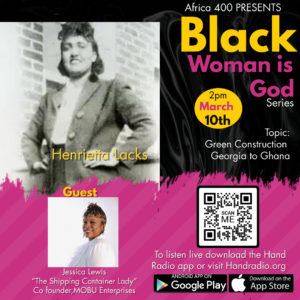
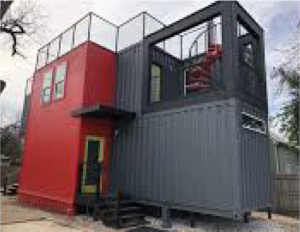 Mobu Enterprises is restoring community education, advocating, and improving the environment with sustainable products and self-sustaining shipping container spaces and designs.
Mobu Enterprises is restoring community education, advocating, and improving the environment with sustainable products and self-sustaining shipping container spaces and designs. To date, Mobu Enterprises has pioneered many major domestic and international projects, including a co-educational school for the gifted in Ghana and several single-family home communities, and multi-family complexes in Macon, Georgia.
To date, Mobu Enterprises has pioneered many major domestic and international projects, including a co-educational school for the gifted in Ghana and several single-family home communities, and multi-family complexes in Macon, Georgia.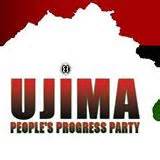 Hi Friend,
Hi Friend,